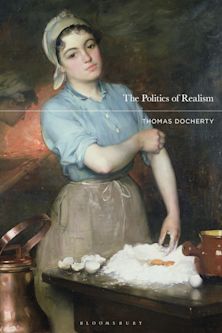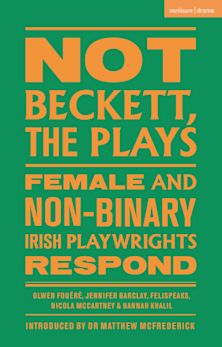- Home
- ACADEMIC
- Literary Studies
- British and Irish Literature
- George Orwell's Perverse Humanity
George Orwell's Perverse Humanity
Socialism and Free Speech
George Orwell's Perverse Humanity
Socialism and Free Speech
You must sign in to add this item to your wishlist. Please sign in or create an account
Description
This is the first book to focus primarily on George Orwell's ideas about free speech and related matters – freedom of the press, the writer's freedom of expression, honesty and truthfulness – and, in particular, the ways in which they are linked to his political vision of socialism.
Orwell is today claimed by the Left and Right, by neo-conservatives and neo-socialists. How is that possible? Part of the answer, as Glenn Burgess reveals, is that Orwell was an odd sort of socialist. The development of Orwell's socialism was, from the start, conditioned by his individualist and liberal commitments. The hopes he attached to socialism were for a fairer, more equal world that would permit human freedom and individuality to flourish, completing, not destroying, the work of liberalism. Freedom of thought was a central part of this, and its defence and use were essential parts of the struggle to ensure that socialism developed in a liberal, humane form that did not follow the totalitarian path of Soviet communism.
Written in celebration of Orwell's dictum, 'We hold that the most perverse human being is more interesting than the most orthodox gramophone record,' George Orwell's Perverse Humanity is a portrait of Orwell that captures these themes and provides a new understanding of him as a political thinker and activist. Based on archival research and new materials that affirm his work as an activist for freedom, it also uncovers a socialist ideology that has been obscured in just the way that the author feared it would be – associated in many people's minds with totalitarian unfreedom.
Table of Contents
1. Orwell and the Culture Wars
2. How to Be Yourself (or Not): Orwell's Early Novels
3. The Expression on a Human Face
4. Individualism, Liberty, Socialism
Part I: Orwell's Socialism
1.. Before Orwell; Before Socialism: A Tory Anarchist?
2. The Birth of George Orwell's Socialism
3. The Development of Orwell's Socialism
(a). Peace, Empire and Internationalism
(b). Revolution and Political Violence
(c). Nostalgia, Progress, and Utopia
Part II: Orwell and Freedom of Thought
1. From Eric Blair to George Orwell: Englishness and Freedom
2. Libel, Obscenity and Politics: Orwell's Early Experience of Censorship
3. 'All Propaganda is Lies': Orwell, BBC Propaganda and Intellectual Responsibility
4. Writing for Freedom: Tribune, Animal Farm and Free Speech
5. Activist for Intellectual Freedom: (I) The Freedom Defence Committee
6. Activist for Intellectual Freedom: (II) The League for the Dignity and Rights of Man
7. Propaganda Again: Orwell, His List and the Information Research Department (IRD)
8. Freedom and Truth: Nineteen Eighty-Four
Index
Product details

| Published | 06 Apr 2023 |
|---|---|
| Format | Ebook (PDF) |
| Edition | 1st |
| Extent | 280 |
| ISBN | 9781501394683 |
| Imprint | Bloomsbury Academic |
| Publisher | Bloomsbury Publishing |
About the contributors
Reviews
-
Glenn Burgess has written with great perception about how intensely Orwell valued free speech and how determined he was to defend it. This study makes us vividly aware of aspects of Orwell, particularly his activism, that have been hitherto comparatively neglected. It will be read with great interest by the many who wish to know more about and understand better a writer whose impact has continued to grow over the years.
Peter Stansky, Professor Emeritus of History, Stanford University, USA, and author of The Socialist Patriot: George Orwell and War
-
Glenn Burgess synthesizes a massive number of primary and secondary texts and constructs an original and clear argument around them on a vitally important area – namely Orwell's ideas about socialism, free speech, freedom of thought, press freedom and censorship. It amounts to an important and fascinating addition to Orwellian scholarship.
Richard Lance Keeble, Professor of Journalism, University of Lincoln, UK
-
Burgess's book is structured logically and straightforwardly... George Orwell's Perverse Humanity is detailed and often forensic in its methodology. It is, however, readable and fascinating.
Forum for Modern Language Studies

ONLINE RESOURCES
Bloomsbury Collections
This book is available on Bloomsbury Collections where your library has access.



































